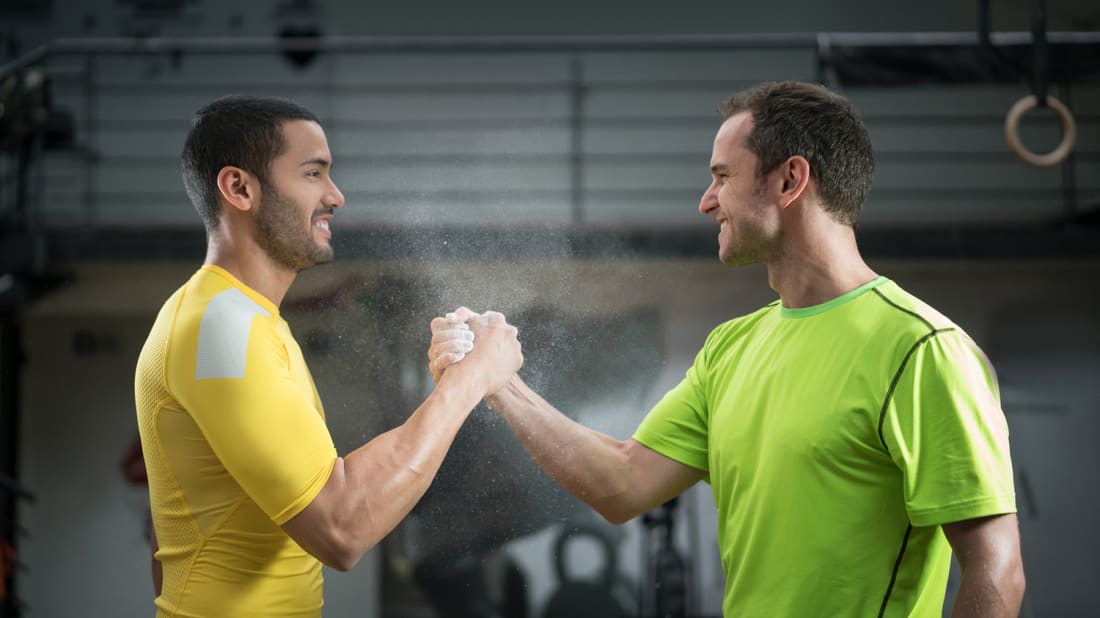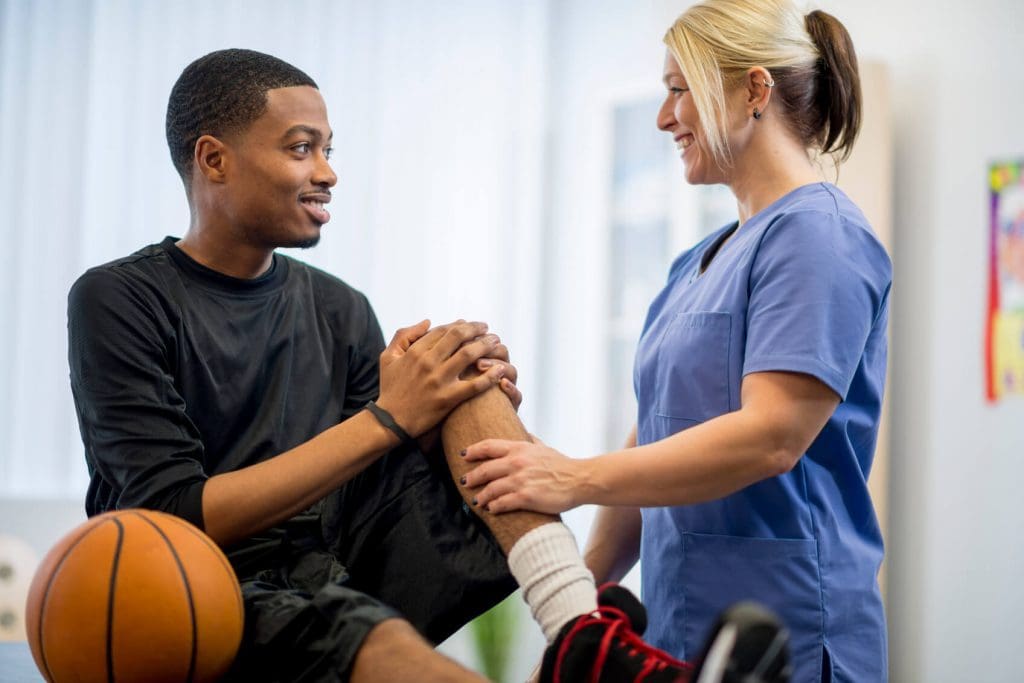
Sports psychologists play a crucial role in bridging the gap between physical performance and mental well-being. They apply psychological principles to enhance athletic performance, manage mental challenges, and support athletes in achieving their full potential. These professionals work with individuals across various skill levels, from amateur players to elite athletes, helping them overcome obstacles and optimize their psychological readiness for competition.
Key Responsibilities of a Sports Psychologist
- Develop mental strategies such as visualization, goal setting, and concentration techniques to enhance athletic performance.
- Train athletes on maintaining focus under pressure during high-stakes scenarios.
- Help athletes cope with stress caused by competition or training demands.
- Provide tools for reducing pre-performance anxiety, such as breathing exercises or cognitive restructuring.
- Assist injured athletes in staying motivated during recovery.
- Address emotional challenges such as frustration or fear of re-injury during rehabilitation.
- Facilitate group dynamics within teams to promote collaboration and trust.
- Offer conflict resolution strategies when interpersonal issues arise among teammates.
- Identify signs of burnout, depression, or other psychological conditions that may affect performance.
- Collaborate with medical professionals for comprehensive care when needed.
- Provide guidance on balancing academic responsibilities with sports commitments for young athletes.
- Educate families on fostering a supportive environment free from excessive pressure.
- Work closely with coaches to align mental training techniques with physical regimens.
- Offer recommendations on how coaches can create a psychologically safe environment for athletes.
Table: Core Responsibilities of Sports Psychologists
| Responsibility Area | Examples of Activities | Beneficiaries |
| Performance Enhancement | Visualization exercises, focus drills | Individual Athletes |
| Stress Management | Relaxation techniques, mindfulness training | Athletes & Teams |
| Injury Rehabilitation | Motivation coaching during recovery | Injured Athletes |
| Team Support | Conflict resolution workshops | Teams & Coaches |
| Mental Health Advocacy | Early detection of burnout | All Athletes |
Working Across Different Contexts
- Professional Sports Teams: In these settings, they directly contribute by working hands-on to improve team dynamics and individual athlete performance.
- Academic Institutions: They provide guidance to student-athletes balancing academics and athletics while preparing them mentally for competitions.
- Private Practice: Some sports psychologists operate independently, offering tailored services to clients spanning various skill levels.
- Rehabilitation Centers: A focus here is supporting injured athletes through both short-term recovery periods or long-term career implications due to injuries.
Sports psychologists play both proactive (performance optimization) and reactive (stress management) roles critical for an athlete’s overall success while fostering resilience at every stage of their career progression.
Key Work Activities of a Sports Psychologist in McLean, VA
Sports psychologists play a critical role in enhancing the performance, mental health, and well-being of athletes across various levels of competition. Their work activities are diverse and extend beyond just addressing performance issues. Below is an overview of the key responsibilities and daily tasks carried out by sports psychologists.
Performance Psychology in McLean, VA: Strategies for Enhancement
- Goal setting: Assisting athletes in setting achievable short-term and long-term goals to maintain motivation.
- Visualization: Teaching athletes how to mentally rehearse successful performances.
- Concentration training: Helping individuals stay focused under pressure.
- Stress management: Developing methods to control pre-performance anxiety.
Psychological Assessment for Sport Performance Training in McLean, VA
- Using diagnostic tools such as questionnaires or interviews to evaluate psychological readiness.
- Observing behaviors during practice or competitions.
- Identifying potential barriers such as fear of failure or low self-confidence.
Sports Mental Coach in McLean, VA: Mental Health Support
- Dealing with burnout: Identifying signs of overtraining and helping athletes recover mentally and physically.
- Supporting injured athletes: Offering psychological support for recovery and maintaining motivation during rehabilitation.
- Managing transitions: Preparing individuals for life after retirement from professional sports.
Team Dynamics and Communication in Sports Psychiatry in McLean, VA
| Team Dynamic Factors | Role of Sports Psychologists |
| Conflict resolution | Helping resolve disputes between players or coaches |
| Building trust | Encouraging mutual respect among teammates |
| Leadership development | Enhancing captains’ leadership skills |
| Communication improvement | Facilitating open dialog between coaching staff & players |
Educating Coaches and Parents About Sports And Performance Psychology in McLean, VA
- Teaching coaches how to motivate their team effectively without causing undue stress.
- Guiding parents on how to provide constructive feedback while maintaining a supportive environment.
How to Find a Sports Psychologist Near Me and Understand Their Research Contributions
- The impact of mental fatigue on physical performance.
- The psychology behind resilience in elite-level competitors.
- Exploring cultural factors influencing motivation in sport.
Workshops and Training Programs
- Developing mental toughness for high-pressure scenarios.
- Coping with failure after losses in major competitions.
- Creating strategies for maintaining work-life balance as an athlete.
By engaging in these varied activities, sports psychologists provide essential support that fosters both personal growth and professional success for the athletes they serve—enabling them not just to perform better but also lead more balanced lives both on and off the field.
Work Conditions and Environment for Sports Psychologists
The work environment of sports psychologists can vary widely based on their specific roles, employment settings, and client base. While some professionals work in structured, controlled environments, others operate in dynamic and fast-paced settings to support athletes during competitions or training sessions. Below is an overview of the typical work conditions and environments for sports psychologists.
Workplace Settings
- Professional Sports Organizations: Supporting elite athletes and teams at professional levels.
- Colleges and Universities: Working with student-athletes to balance academics and sports performance.
- Private Clinics or Practices: Providing one-on-one counseling to amateur or professional athletes.
- Rehabilitation Centers: Assisting injured athletes in coping with psychological challenges during recovery.
- Olympic Training Centers: Preparing high-performance athletes for global competitions.
Some sports psychologists may also serve as consultants, traveling to different venues such as training camps, tournaments, or international events.
Typical Work Hours
The working hours of a sports psychologist are often non-traditional. They may include evenings, weekends, or holidays due to the nature of athletic schedules. A psychologist supporting athletes during competitions must often adjust their availability to match game times or events.
| Type of Role | Typical Schedule |
| Full-time staff psychologist | Standard 9-to-5 with evening flexibility |
| Consultant | Irregular hours based on client needs |
| On-call for events | Long hours during tournaments |
Travel Requirements
Many sports psychologists are required to travel extensively. For instance: – Traveling with professional teams for away games. – Attending national or international competitions alongside clients. – Visiting remote training facilities or rehabilitation centers.
Travel demands depend on the level at which the psychologist operates; those working with elite athletes may have more frequent travel commitments compared to those practicing locally.
Physical Environment
The physical environment in which a sports psychologist works can range from offices and clinics to outdoor fields or stadiums. Depending on their role: – Office-based professionals typically conduct therapy sessions in calm, private spaces conducive to reflection. – Field-based psychologists may work outdoors at athletic facilities, addressing immediate performance concerns during practice sessions or games.
This diversity necessitates adaptability since professionals might alternate between quiet office settings and high-pressure sporting environments.
Challenges in the Work Environment
Working as a sports psychologist comes with unique challenges that professionals must navigate effectively: 1. High Pressure from Clients: Athletes often compete under immense stress; managing their mental well-being requires strong interpersonal skills. 2. Irregular Schedules: The need for flexibility due to inconsistent hours can impact personal time management. 3. Confidentiality Concerns: Maintaining trust while protecting sensitive information is paramount in this field.
Despite these challenges, many find the profession deeply rewarding due to its significant impact on athlete development both mentally and physically.
Work Conditions and Environment for Sports Psychologists
Sports psychologists work in a variety of environments, depending on the specific nature of their role. From professional sports teams to clinical settings, their workplace conditions are as diverse as the athletes and clients they serve. Below is an exploration of the typical work conditions and environments in this field.
Common Work Settings
- Professional Sports Organizations: Many sports psychologists work directly with athletes within sports teams, including major leagues like the NFL, NBA, or Premier League. These professionals often travel with teams and attend games or training sessions.
- Collegiate Athletic Departments: Universities employ sports psychologists to support student-athletes in managing performance pressure while balancing academics.
- Private Clinics: These psychologists may run private practices where they provide one-on-one consultations for amateur athletes or individuals seeking performance optimization.
- Rehabilitation Centers: Working closely with injured athletes during recovery can also be a key part of their role, helping clients maintain focus and motivation during challenging times.
- Military Training Facilities: Some sports psychologists assist military personnel by applying mental conditioning techniques similar to those used with athletes.
Typical Work Hours
- Evening & Weekend Availability: Many sporting events occur outside traditional office hours, requiring availability during games or training sessions.
- Travel Commitments: For those embedded with teams, frequent travel—sometimes internationally—can be necessary.
Physical Demands
- Observing training sessions on-site
- Conducting assessments outdoors during practices
- Frequent commuting between venues
Professional Interactions
Collaboration is central to this profession. Sports psychologists routinely work alongside coaches, trainers, medical staff, and other stakeholders involved in an athlete’s well-being. Effective communication and teamwork are vital for success in these roles.
| Environment Type | Characteristics |
| Professional Sports Teams | High energy; fast-paced; frequent travel required |
| University Athletics | Focused on young adult development; collegiate team culture |
| Private Practice | Controlled schedule; focused environment |
| Rehabilitation Centers | Collaborative efforts with physiotherapists; patient-focused |
| Military Facilities | Result-driven atmosphere; high-performance mental conditioning |
Challenges Within the Work Environment
- Balancing multiple client needs simultaneously under tight deadlines.
- Managing client confidentiality while working closely with team staff members.
- Sustaining long-term relationships despite unpredictable job tenures (e.g., coaching changes).
Overall, whether working courtside or within a clinical office setting, adaptability is crucial for thriving as a sports psychologist in varying environments.
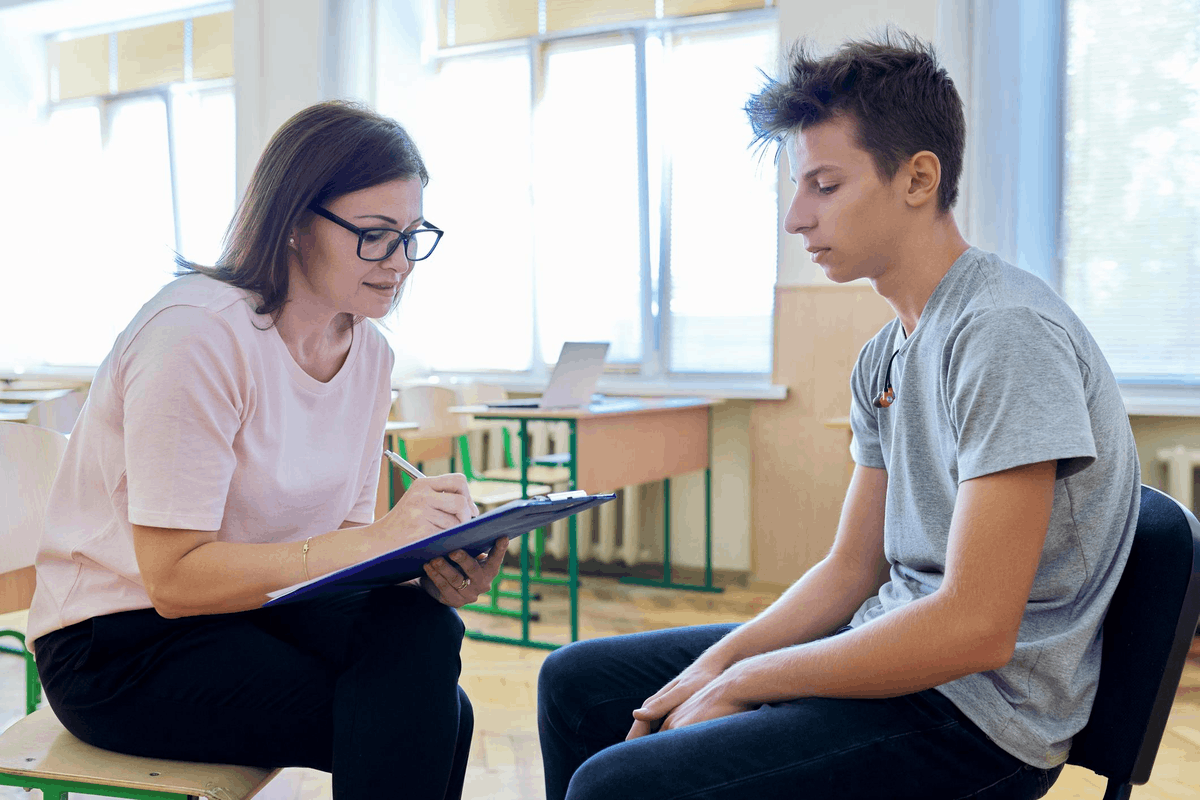
Educational Pathways and Degrees to Become a Sports Psychologist
Becoming a sports psychologist requires a solid educational foundation that combines psychology, sports science, and related disciplines. This career path involves extensive academic preparation and hands-on experience to build the expertise needed to support athletes effectively. Below is an overview of the educational pathways and degrees necessary to enter this field.
1. Undergraduate Degree
The journey begins with earning a bachelor’s degree in a relevant field. This forms the basis of theoretical understanding in psychology and sports-related topics.
Recommended Majors:
– Psychology
– Sports Science or Exercise Science
– Kinesiology
– Physical Education
Core Subjects Often Covered:
– General Psychology
– Human Anatomy and Physiology
– Motor Learning and Development
– Statistics for Behavioral Sciences
Students are encouraged to volunteer or gain experience with athletic teams during their undergraduate studies to develop practical insights into the dynamics of sports performance.
2. Graduate Studies: Master’s Degree
A master’s degree is typically the next step for those pursuing a career as a sports psychologist. This level of study allows individuals to specialize further while gaining deeper theoretical knowledge and applied skills.
Common Degree Options:
– Master’s in Sports Psychology
– Master’s in Clinical or Counseling Psychology with a focus on Sports Psychology
Skills Developed in Graduate Programs:
– Performance Enhancement Techniques (e.g., goal setting, visualization)
– Mental Health Counseling for Athletes
– Understanding Group Dynamics within Teams
Many programs also include supervised internships or practicum experiences, allowing students to work directly with athletes under professional guidance.
3. Doctoral Studies: Ph.D. or Psy.D.
For those aiming for advanced positions in clinical practice, research, or academia, pursuing either a Doctor of Philosophy (Ph.D.) or Doctor of Psychology (Psy.D.) is essential.
| Type | Focus |
| Ph.D. | Research-oriented, ideal for those interested in academic roles |
| Psy.D. | Practice-focused, suitable for individuals who want to work directly as practitioners |
Doctoral programs often emphasize subjects such as advanced clinical techniques, psychometrics, research methods, and ethical considerations specific to sports psychology.
4. Licensure Requirements
In most countries, including the United States and many parts of Europe, becoming a licensed psychologist requires:
1) Completing an accredited doctoral program;
2) Passing relevant licensure exams;
3) Accumulating postdoctoral supervised hours (requirements vary by region).
Those focused specifically on working with athletes may also pursue accreditation from professional bodies such as:
– Association for Applied Sport Psychology (AASP) – Certified Mental Performance Consultant® (CMPC) credential
– American Psychological Association – Division 47 specialization
Summary Table: Educational Pathway Overview
| Educational Level | Key Milestones/Qualifications |
| Bachelor’s Degree | Foundational knowledge in psychology/sports science |
| Master’s Degree | Specialization opportunities with hands-on learning |
| Doctoral Studies | Advanced expertise; preparation for licensing |
| Licensure & Certifications | Legal authority to practice; optional industry credentials |
By following these steps systematically while gaining practical exposure through internships or work placements along the way, aspiring professionals can position themselves well within this competitive yet rewarding field.
Postgraduate Study Options for Aspiring Sports Psychologists
Postgraduate education provides a critical pathway for aspiring sports psychologists to deepen their expertise and enhance their career prospects. After completing an undergraduate degree in psychology or a related field, postgraduate study offers specialized training, research opportunities, and access to advanced professional qualifications in sports psychology. Below is an overview of postgraduate study options along with their benefits.
Common Postgraduate Programs in Sports Psychology
- Duration: Typically 1-2 years full-time.
- Focus: Advanced theoretical knowledge of psychology as it applies to sports, performance enhancement techniques, athlete mental health, and counseling skills.
- Coursework on psychological theories and interventions.
- Research projects exploring emerging trends in sports psychology.
- Practical placements or internships with teams or athletes.
- Duration: 3-5 years full-time on average.
- Focus: Independent research aimed at contributing original knowledge to the field of sports psychology.
- Conducting experimental research studies.
- Writing a dissertation.
- Opportunities to teach undergraduate students or mentor others.
- Duration: 4-6 years depending on the program structure.
- Focus: Practical application of sports psychology principles combined with clinical training for licensure as a psychologist.
- Clinical placements focusing on athletes’ mental health management.
- Emphasis on evidence-based practices for counseling and intervention.
- Postgraduate Diplomas or Certificates
These shorter programs typically last between 6 months and 1 year and are ideal for professionals seeking additional qualifications without committing to a full degree program.
Benefits of Pursuing Postgraduate Education
- Enhanced Career Opportunities: Graduates with advanced degrees are better positioned for leadership roles in organizations such as professional sports teams, universities, and governmental agencies.
- Specialized Knowledge: Postgraduate study equips individuals with specific expertise tailored to addressing the unique psychological needs of athletes.
- Licensing Requirements: In many countries, becoming a licensed psychologist requires completion of an accredited postgraduate program followed by supervised practice hours.
Selection Criteria for Postgraduate Programs
| Criteria | Questions to Ask |
| Program Accreditation | Is the program recognized by leading professional bodies (e.g., APA, BPS)? |
| Faculty Expertise | Are there experienced faculty members specializing in your area of interest? |
| Research Opportunities | Does the program offer funding or resources for cutting-edge research projects? |
| Networking Potential | Will you have access to professional networks within the sports industry? |
Preparing for Postgraduate Studies
- Gain relevant experience through internships or volunteer work with athletes or sports organizations during undergraduate studies.
- Develop strong research skills by participating in academic projects early in your academic career.
- Build relationships with mentors who can provide guidance on selecting programs and career pathways.
By committing to advanced studies, aspiring sports psychologists can position themselves as experts capable of making meaningful contributions both academically and professionally within this dynamic field.
Typical Employers and Career Opportunities in the Field of Sports Psychology
Sports psychology is an evolving and dynamic field that offers a wide range of career opportunities. As the importance of mental preparation in sports continues to gain recognition, professionals in this domain are increasingly sought after. Below, we explore typical employers and potential career paths for sports psychologists.
Common Employers of Sports Psychologists
- National football, basketball, baseball, and soccer leagues often employ sports psychologists to enhance player performance.
- Roles may involve working with athletes on mental toughness, handling pressure during competitions, or recovering from performance slumps.
- Many academic institutions hire sports psychologists to work with student-athletes.
- They address challenges such as balancing academics with athletic commitments or building resilience in competitive environments.
- These facilities often integrate psychological support into their rehabilitation programs for injured athletes.
- Sports psychologists in such settings help athletes cope with recovery stress and regain confidence post-injury.
- Organizations like Olympic committees or national sports federations regularly employ experts to work with elite athletes representing their countries.
- Responsibilities may include designing individualized mental training programs and fostering team cohesion.
- Some sports psychologists choose to work independently by setting up private practices.
- This option allows flexibility while serving amateur athletes, fitness enthusiasts, or even corporate clients seeking performance optimization.
- Armed forces often hire sports psychologists under roles like performance consultants to prepare soldiers mentally for high-pressure situations.
- Companies increasingly recognize the value of psychological principles developed for athletes when applied to workplace productivity and leadership training.
Career Opportunities Within Sports Psychology
- Mental Performance Coach Focuses on strategies like goal setting, visualization techniques, self-talk management, and coping mechanisms for stress.
- Rehabilitation Specialist Works closely with injured players to help them recover not just physically but psychologically as well.
- Team Dynamics Consultant Specializes in improving communication within teams to foster better collaboration on and off the field.
- Researcher or Academic Professional Pursues research related to athlete behavior, motivation theories, or psychological interventions in sports contexts; teaches aspiring sports psychologists at universities.
Skills Tailored for Varied Roles
| Employer Type | Key Skills Required | Example Roles |
| Professional Teams | Emotional intelligence; resilience training | Mental Conditioning Coach |
| Academic Institutions | Counseling skills; academic advising | Student-Athlete Psychologist |
| Private Practices | Business acumen; diagnostic skills | Independent Consultant |
Future Growth Potential
With increased awareness about mental health’s role in achieving peak performance among individuals—whether they are elite athletes or recreational participants—the demand for skilled professionals will likely continue rising over time.
This growing recognition highlights that a career as a sports psychologist not only offers diverse opportunities across multiple sectors but also provides immense personal fulfillment through helping individuals unlock their full potential mentally as well as physically.
- Sports Counselling McLean, VA: The Critical Role of Psychology in Enhancing Elite Sports Performance
- Sports Counselling McLean, VA: Job Description and Key Responsibilities of a Sports Psychologist
- Sport Performance Training in McLean, VA for Professional Athletes
- Exploring Sports Counselling McLean, VA: Enhancing Athletic Performance Through Psychology
- Enhancing Team Dynamics in Football with Sports Counselling McLean, VA
- How Performance Psychology in McLean, VA Can Enhance Team Cohesion and Performance
- The Role and Importance of a Sports Psychologist McLean, VA

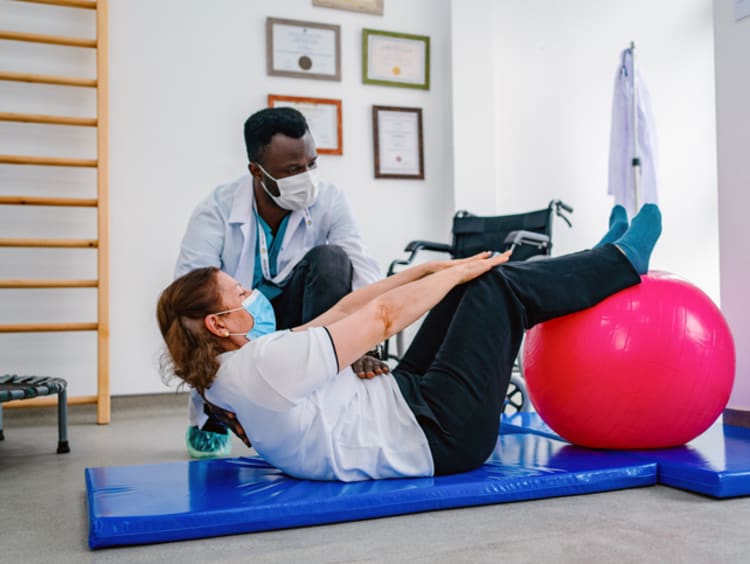
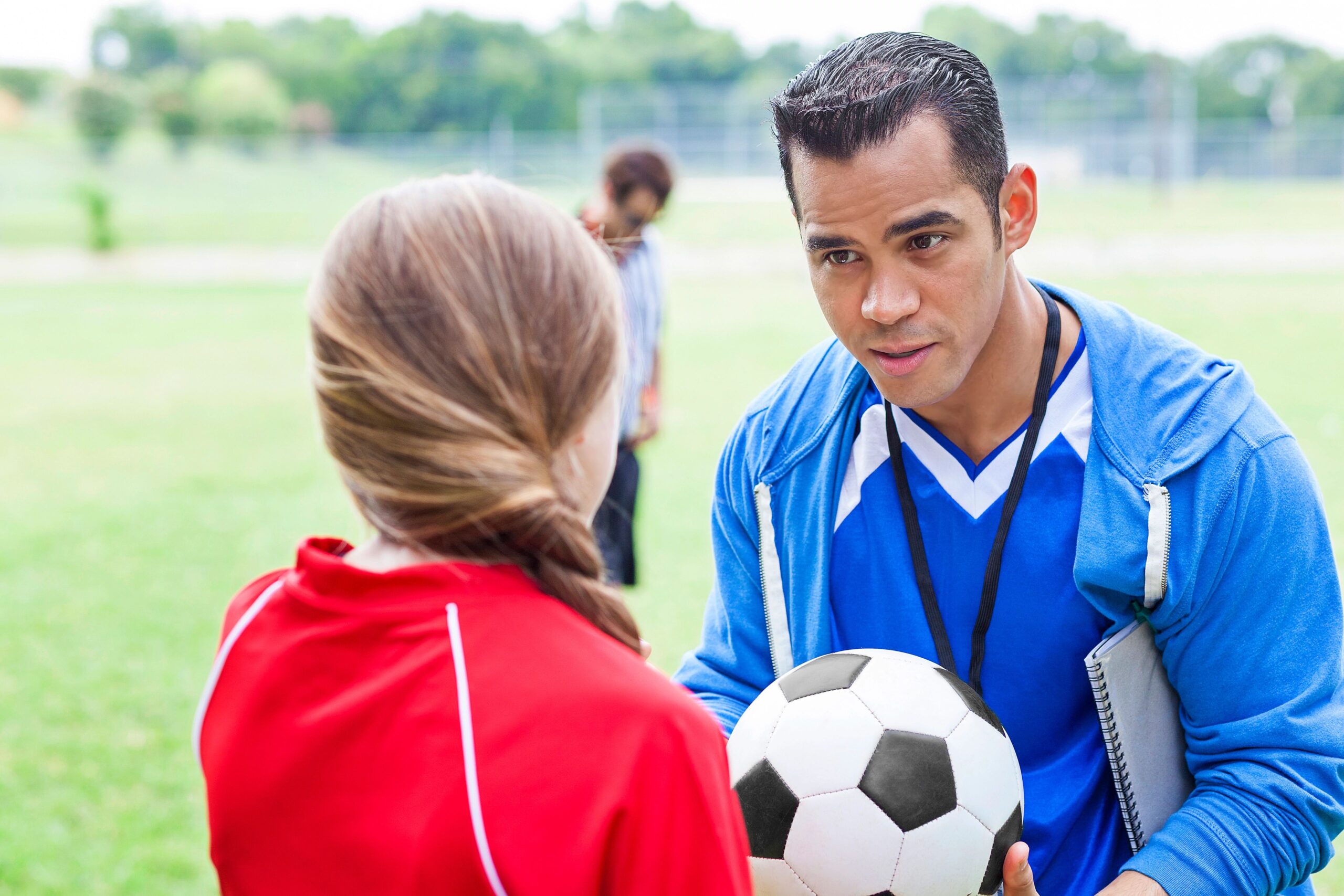


.jpg)
